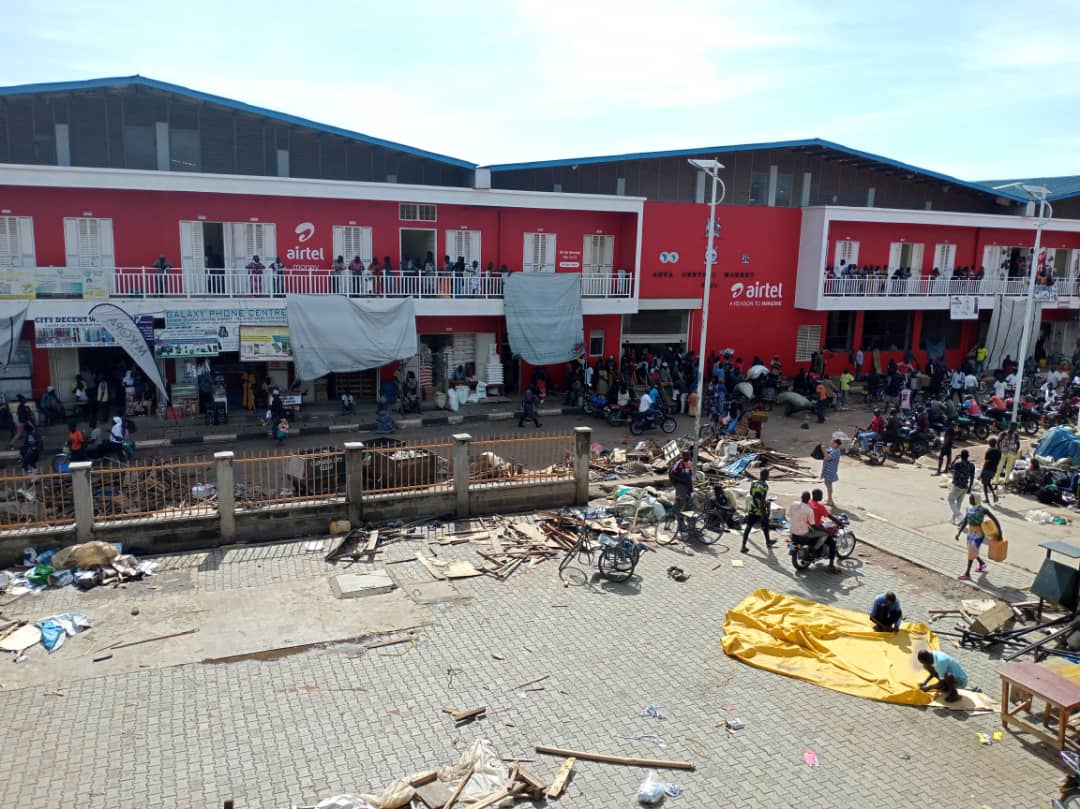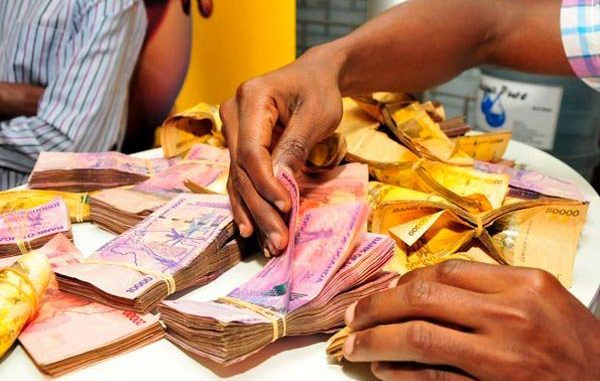Fear grips Italy as Coronavirus outbreak confirmed in the country
It was not from delicacy, amid the outbreak this week of coronavirus in northern Italy, that Milan’s iconic opera house La Scala canceled a performance of Giuseppe Verdi’s La Traviata. Despite the fact that the opera concludes on the tragic death of the heroine, who succumbs to tuberculosis, the performance was due to go ahead anyway until the regional government announced the cancellation.
La Scala was another cultural casualty of a contagion that has shaken two of Italy’s wealthiest and most productive regions, Lombardy and Veneto, and is roiling indirectly other parts of the country, too. Milan, Italy’s commercial capital, has seen its annual fashion show postponed as well as the disruption of other high-profile trade shows and events. The annual Venice Carnival was cut short and several top league football matches have been postponed.
In a bid to tame the novel virus, the government moved quickly to lock down nearly a dozen towns. But many Italians fear the move will not stop the virus.
Anxiety spreads
Along the so-called boot of Italy, right down to the ankle of Campania and the heel of Apulia, anxiety is mounting about whether COVID-19 will spread. Coupled with the worry of actually contracting the virus is the even greater fear of how the national government and regional authorities will react. People are asking themselves whether a confirmed case here or there will result in their towns being closed down, their schools shuttered.

And hardly surprisingly they are preparing for the worst, heading to supermarkets and pharmacies to stock up. In some towns, shelves are emptying fast — especially of staples and dry foods. A friend of mine complained on Facebook that she could find only wholemeal and organic pasta. “And skimmed milk. I'm going to be SO healthy by the time this is over,” she added.
Skepticism grows
Most Italians are dismissive of Prime Minister Giuseppe Conte’s assurances that “everything is under control.” So, too, are regional governments. Many are taking matters into their own hands.
Authorities in the southern region of Basilicata, which so far has not had any confirmed coronavirus cases, have announced anyone arriving from affected areas in Lombardy or Veneto must undergo a two-week quarantine or self-isolate at home. Local authorities have closed schools not only in the worst-affected regions of Veneto and Lombardy, but also in Marche, Piedmont, Emilia-Romagna and Liguria. That’s drawn a stern rebuke from the central government in Rome, which is threatening legal action.
While the national government has suspended all school trips and exchange programs until March 25th, it insists schools should remain open outside the locked-down towns. Conte has pleased for national unity, criticizing local authorities for deviating from what Rome wants.

Disease, panic, and fake news
Like governments elsewhere in Europe, Italy’s central authorities are desperately trying to balance their worst-case scenario preparations and the effort to contain the contagion while trying to quell panic over the virus. That is a hard trick to pull off — especially with 24/7 news coverage and social-media misinformation.
And Conte’s government is not only furious with regional governments for their deviations. On Wednesday, the foreign ministry castigated foreign media for what it called “inaccurate and alarmist news” on the coronavirus emergency, arguing the government has been prompt in its response. The ministry criticizes reporters for not reflecting “the reality of a phenomenon of contagion that remains significantly circumscribed to some small areas and restricted to a few regions.”
Life under lockdown
Inside those small areas, the so-called ‘red zone,’ life for many is surreal. They went to bed one day, only to wake up another to find stores, schools, restaurants and bars shuttered. They are not allowed to travel beyond their towns. In all 50,000 residents in 10 towns in Lombardy and one in Veneto have found themselves closed off from the outside world and their lives suspended as they tick off the hours of their forced quarantine.
The only vehicles allowed to enter or exit are police cars, ambulances and delivery trucks carrying essential supplies. But local reporters have noted the police are not monitoring particularly vigorously the Strada Bianca, the gravel roads and cart tracks that criss-cross much of Italy and are used by farmers and locals.

Schoolteacher Marzio Toniolo says life in the locked-down town of San Fiorano, 70 kilometers from Milan, has become tedious. “This is the atmosphere in my town right now,” he says in a video uploaded to YouTube. He then pans his camera out to show deserted streets. “You can go out for walk, walks our dogs, go jogging, ride bikes, but authorities have advised we avoid contact with other people,” he says, adding, “We know we may have already contracted the coronavirus, so we are just taking things day by day.” Some of his friends who fell ill say it is “just a strong fever that goes way in a few days.”
Other residents contacted on Facebook talk of boredom. Some are angry, a few say they’re nervous and all note how strange it is to keep neighbors and acquaintances at a safe distance.
Profiteers
Some people have seized on the emergency as an opportunity to profit, to sow discord or to push hate. Milan prosecutors, Tiziana Siciliano and Eugenio Fusco, have opened a case against “fake news” after listening to an audio message that has been circulating on WhatsApp.
In it, a woman warns of an imminent order to quarantine the whole city of Milan, saying she received a confidential tip-off from “the husband of a friend of hers” who works for the regional government. She warns all shops will shortly be closed and advises: “organize yourself with shopping, stock up because if they close everything, they close everything for at least a month because the situation is not as the news broadcasts say, they have lost control of the virus.”

Fake news like that has fueled in large part the fury of shopping this week.
“I would define it as a moment of general madness dictated by panic,” was how Valentino Di Pisa, vice president of Fedagromercati, the trade association of food retailers and supermarkets, dubbed the shopping frenzy. “Some supermarket chains and many stores were literally stormed,” he said.
In an interview with Bologna Today, Di Pisa said: “The situation has worsened in the last three days and I appeal to consumers to be calm and not to give in to collective hysteria.”
Prosecutors in various cities have opened investigations into price gouging and businesses seeking to cash in by selling masks and medicines at inflated prices. There’s quite a trade in fake surgical masks, too.
Fear of foreigners
Among the most noxious rumors circulating on social media is the baseless one that foreign-sourced foods could be carriers of the virus. Italians and tourists of Chinese and Asian origin also complain of physical and online harassment as well as acts of violence. “What are you doing in Italy? Go away! You're bringing us disease,” a 15-year-old Chinese-Italian boy was told as he was punched in the northern city of Bologna earlier this month.
In the northern towns of Como and Brescia, posters, stamped with the logo of the far-right Forza Nuova party, were plastered on the storefronts of Chinese-Italian businesses, announcing, “Coronavirus? Buy Italian. It's a moral duty.”

Economy hit
Italy’s economy has already been hit hard by the outbreak. Tourist cancellations have reached 90% in Rome for March due to the coronavirus emergency. Luxury food and fashion businesses are suffering from declining Chinese demand. The entertainment sector is barely functioning. Factory shutdowns and office closures in the north are disrupting the supply chains of Italy’s high-productivity northern regions areas, which provide important parts to other European factories.
The virus emergency is piling on pressure on an economy, Europe’s fourth-largest, that was already contracting at the end of last year. It seems inevitable that Italy will be pushed into its fourth recession since the 2008 global financial crash.













